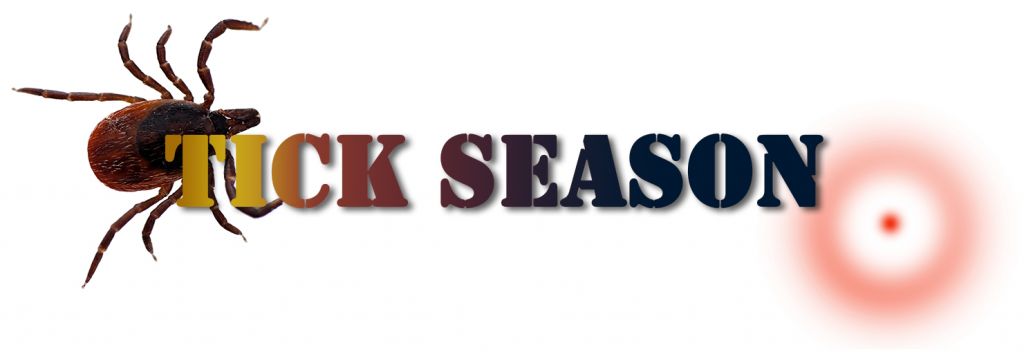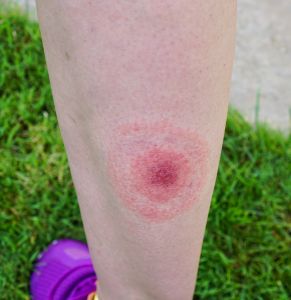May 9, 2017
May 9, 2017

NEW ENGLAND/NORTHEAST CORRIDOR – As reported in both local and national media, Lyme disease could very well see infection rates skyrocket this summer, thanks to a mild winter and a resultantly large tick population. Ticks are parasitic arachnids with highly durable bodies that typically latch onto a host (sometimes you or your pet) from bushes or tall grasses that you may brush against while walking in the woods, fields, or even your yard or garden. They are also vectors not just for Lyme but for more than a dozen other diseases of some concern—and the list is growing.
“The tick-borne illnesses with the highest attack rates in the Pioneer Valley remain Lyme disease, anaplasmosis and babesiosis, in that order,” says Dr. William Swiggard, a specialist at Cooley Dickinson Medical Group’s Infectious Diseases practice. “This year is forecast to harbor an unusually large population of deer ticks due to the relatively warm winter we had.
“Roughly a third of deer ticks carry the agent of Lyme disease [the spiral-shaped bacteria Borrelia burgdorferi],” says Dr. Swiggard, who has studied tick-borne diseases extensively. “Not all tick bites result in transmission. The riskiest tick bite for infection is the bite of a tick that is engorged with blood, since it is thought that transmission occurs at or near the end of the blood meal.”

Stay Alert
If you’re bit, be vigilant and stay alert for telltale bullseye or other rashes, fever or joint pain, though be aware that in many cases of Lyme and other disease only some or none of these symptoms may be present. Testing for tick-borne diseases can be tricky, but available techniques and testing accuracy have both gradually improved over the last few decades since growing rates of infection have emerged. Tick testing is also available for a reasonable fee—you can bring it to UMass-Amherst’s Laboratory of Medical Zoology (LMZ), a national tick testing lab which has seen its clientele soar in the last few weeks. If you’re concerned, you can visit www.tickreport.com, report your tick bite and either mail or hand-deliver your tick for testing. Doing this also helps contribute to public health data which works to establish disease prevalence by zip code (you can search results by zip code HERE).
Diagnosis & Treatment
If diagnosed, you’ll probably be prescribed a course of Doxycycline, an antibiotic which seems to treat most tick-borne infections very well. Early treatment seems to result in improved outcomes, and new research shows that previous Doxycycline contraindication in children under 8 years old (due to effects on tooth enamel) may now be outdated information, so make sure you consult with your health care provider/specialist when seeking the most effective treatment for your young children.
Prevention
“Because there is no effective human vaccine against any of [these infections],” says Dr. Swiggard, “our most important defense against tick-borne illnesses remains self-protection against deer tick bites.”
That means long pants, socks & shoes, Deet-based repellents and meticulous checks of clothing and bodies after returning from jaunts in the fields or woodlands. If you want to try to tick-proof your property, clean up debris like leaves and brush, keep your lawn mowed and, if you want to be aggressive, you can try things like tick tubes or permethrin spray, which can substantially reduce tick populations in your yard, but take care to protect your animals (especially cats) when using these products. There are also other, more natural solutions including rosemary oil and cedar oil that are purportedly almost as effective.
Also, don’t forget to treat your pets (typically with monthly applications of vet-prescribed flea/tick treatment), especially cats and dogs who roam about outdoors. Your indoor-outdoor pets likely bring more ticks into your house than any other thing.
To view an in-depth slideshow on ticks and Lyme disease in Massachusetts, click HERE.


i’m pretty curious if there are natural treatments for tick bites.. i mean treatments that are eco-friendly and child safe.. so i could protect my children from further danger other than the tick bites…